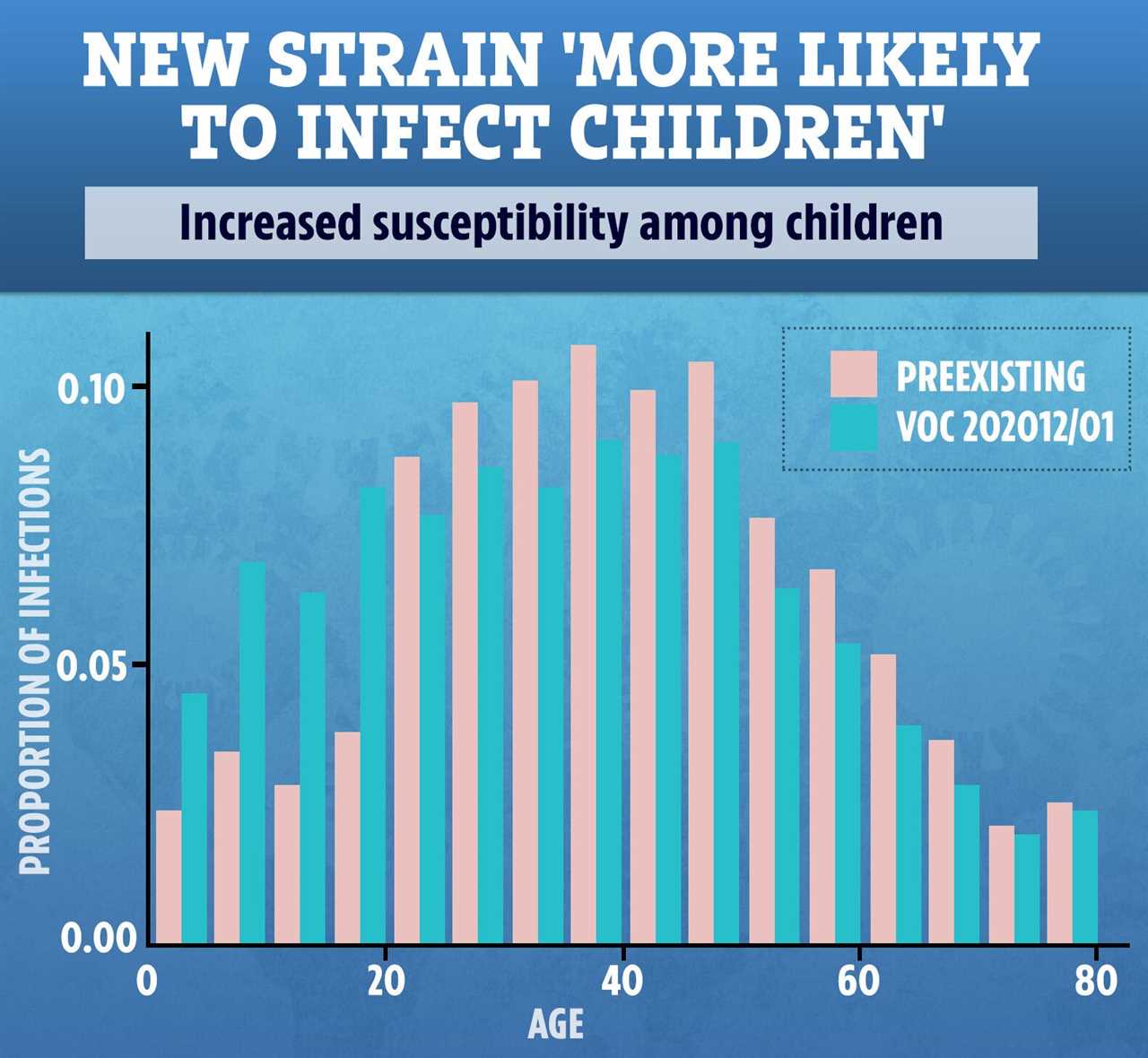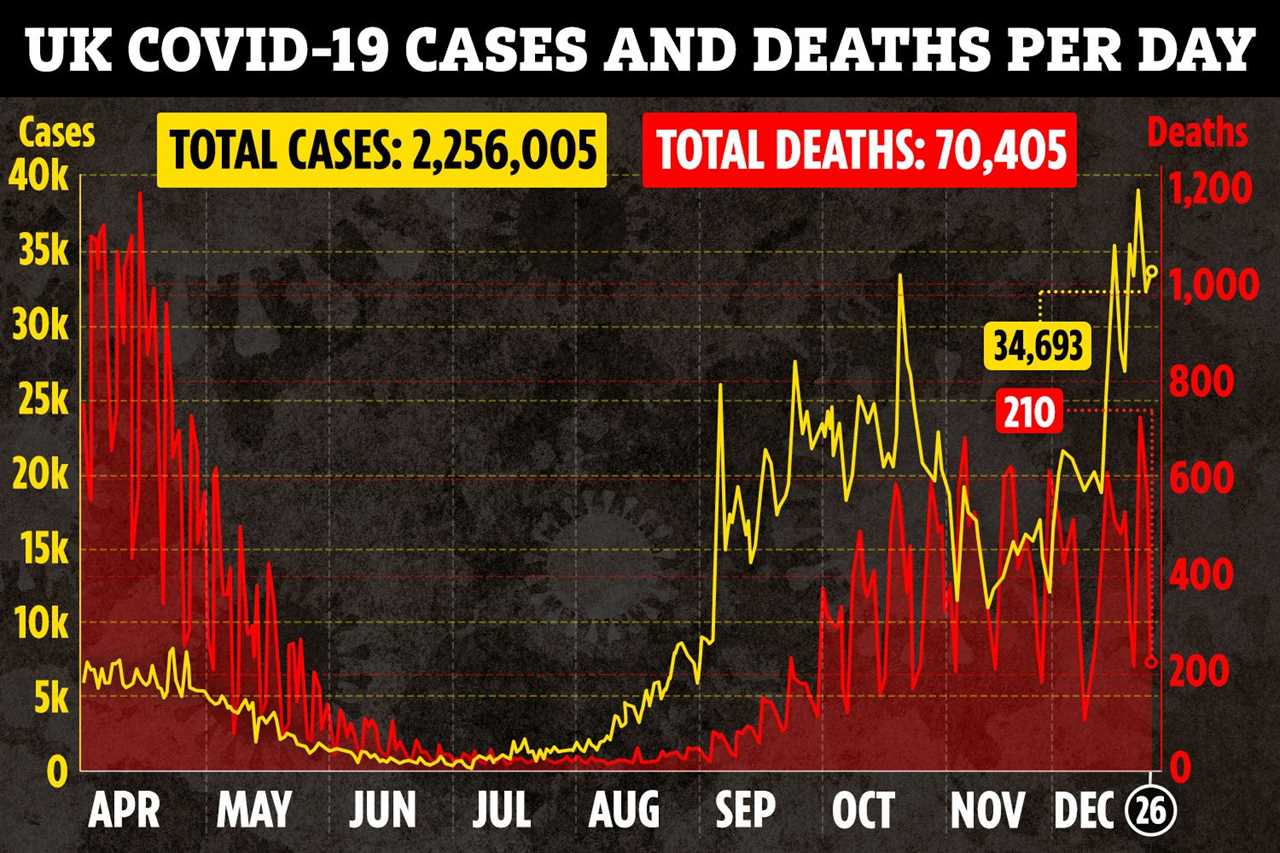THE new mutant strain of coronavirus found in Kent could be more likely to affect children, scientists have warned.
Researchers at the London School of Hygiene and Tropical Medicine said there is “some evidence that the increase may be particularly marked in children.”


They found that the new strain of the virus is 56 per cent more infectious – and that even with another national lockdown, it would be difficult to get the R rate down.
Their study also found that infections were “unlikely” to go down unless schools and universities closed.
The virus variant will lead to a wave of coronavirus cases and deaths that will peak in spring 2021 for London, the South East and east of England, according to scientists.
And they said that cases and deaths will peak in summer 2021 for the rest of the country.
However, researchers don’t believe the new strain is more deadly or will be more severe in either adults or children.
Coronavirus is most rampant among secondary school children, according to figures from the Office for National Statistics.
But throughout the pandemic, kids have had far fewer cases on the whole in comparison to adults.
This is thought to be because of how the Covid enters human cells – via a receptor called ACE2 which is found on many cells in the upper respiratory tract.
NEW COVID STRAIN
As a result, Professor Wendy Barclay of Imperial College London and a NERVTAG member, explained this made adults “easy targets” compared to children.
This is because the amount of ACE2 a person has increases over time – so young children have very little.
She said: “I think on the topic of children we’ve got to be careful about what we say.
“We are not saying this is a virus that specifically attacks children or is any more specific in its ability to infect children.
“But we know that SARS-CoV-2, as it emerged as a virus, was not as efficient at infecting children as it was adults.
“The previous virus had a harder time binding ACE2 and getting into cells and therefore adults, which have abundant ACE2 in their nose and throat, were the easy targets and children were difficult to infect.
“The newer virus has an easier time doing that and children are therefore equally susceptible, perhaps, to this virus as adults.
‘MORE CHILDREN BEING INFECTED’
“Given their mixing patterns, you would expect to see more children being infected.
“It’s not because the virus is specifically targeting children, but that it is now less inhibited.”
Speaking a virtual media briefing hosted by the Science Media Centre, Professor Neil Ferguson, an epidemiologist of Imperial College London and member of No10’s advisory group NERVTAG, said: “There is a hint that it is has a higher propensity to infect children.
“That may perhaps explain some of the differences but we haven’t established any sort of causality.”
Meanwhile, debates are still ongoing about when schools will reopen after the Christmas holidays.
Communities Secretary Robert Jenrick told Times Radio: “They will definitely be back in January. We want to keep schools open.”
This comes as 34,693 more people were infected with the virus over Christmas Day.
Covid deaths rose by 210 today, passing 70,000 total deaths in a grim new milestone for Britain.
The figures show a drop in deaths in comparison to yesterday’s numbers and a rise in cases, with 32,725 new coronavirus cases and 570 Covid-related deaths recorded on Christmas Day.
But today’s figures don’t include the death toll or cases from Northern Ireland or Scotland.
This means the true death toll will likely jump on December 29 when the figures are updated.







